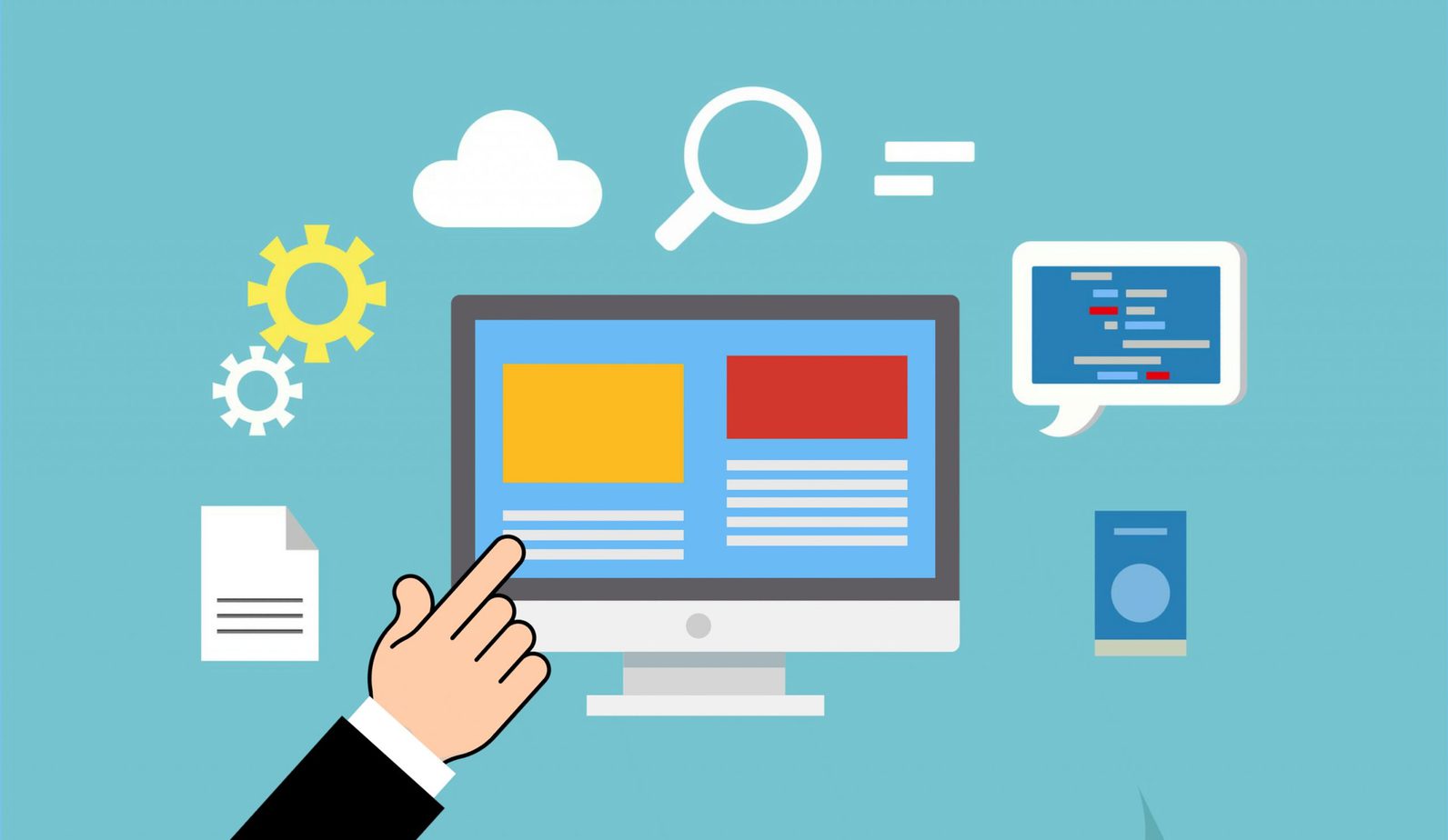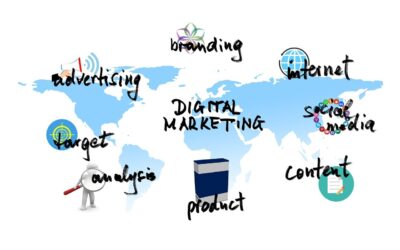Keep Your Website Safe from Cybersecurity Risks
Effective marketing campaigns are data-driven, the idea is that you know your target customer so well that you can recommend a product or service they’re likely to purchase. Although knowing your customers that good is vital for your campaign, it also presents a few challenges in terms of privacy and data security. As a marketer, what can you do to alleviate some of these risks?
Understand the risks digital marketers face
The first step to solving a problem is understanding the problem and how to solve it. Since you’re dealing with a marketing website, you can start by understanding the cybersecurity risks that marketers face. These include:
1. Email Marketing Risks
Email marketing is still the most effective marketing tool, but it’s also an easy target for cyber attackers. By default, email is not the most secure tool; thus, cybercriminals tend to capitalize on their weaknesses.
Cybercriminals tend to use email spoofing and phishing to trick customers into sending them sensitive information. A cybercriminal can pretend to be your marketing company and convince your clients to send sensitive information such as social security numbers or bank account details. They could also send ransomware to your clients and demand payment to decrypt the data.
Ensure that your email outreach campaign cannot be duplicated, cloaked, or misrepresented. Filter outbound emails to protect your clients. Hackers are sneaky with their attacks, and they can intercept outgoing emails. Once they have access to the emails, they can add attachments or malicious viruses. You can prevent this by adding an extra firewall to detect such messages.
2. Content Management System Risks
You need a content management system to manage content on your website. Typically, most users opt for open-source CMS such as WordPress, Joomla, and Drupal. Open-source means that anyone can alter the source code, which has both upsides and downsides.
For starters, you can tweak the code to fit your needs, but anyone can view the changes you make. This means that an attacker can inspect your code in search of weaknesses they can exploit.
Opt for a closed source CMS instead of an open-source as the former will prioritize security maintenance. Also, since the CMS is closed-source, only the providers have access to code. They will constantly review the code and implement security measures to protect the users. The handlers will also prioritize security patches to fix any vulnerabilities in the CMS.
Also, remember to create backups before making any vital changes or updates. If you post content regularly, ensure that you create backups according to your post frequency. This ensures that you don’t lose much of your work in case an intruder modifies your website or deletes your content.
3. Social Media Marketing Risks
You can’t have a successful marketing strategy without using social media. The bulk of the population is on social media; thus, if you want to reach your target audience, you’ve got to prioritize social media marketing campaigns.
Most digital marketers will offer social media marketing as part of their services, but if you’re not cautious, you could fall prey to cyber attackers. Therefore, ensure you improve social media security measures by using strong passwords, limiting access to social media accounts, and educating your employees on how to avoid these risks.
Now that you’ve acknowledged and understood the risks that you face, you implement cybersecurity risk assessment to ensure that you can identify the risks before they occur.
4. Viruses and malware
Website owners often think of their websites as secure or too small for hackers. However, hackers always opt for small businesses as they’re easier targets. You might think that your website is secure, but remember that cyber-attacks are constantly evolving. Your website could be secure today, but tomorrow it becomes vulnerable to malware or virus attacks.
Viruses often come from vulnerable plugins or templates, vulnerable scripts, theft of FTP access, server, or hosting hack. You could also have malware on your site, and they tend to be very destructive.
The key to eradicating a virus or malware is not to treat the symptoms or remove the malware. The most critical solution is understanding how you got the malware or virus. This eliminates the possibility of reinfection.
Hackers typically use the webmaster’s computer to gain access to a website. Therefore, start by checking your computer for any malicious programs. Check your servers, especially if you’re using shared WordPress hosting. Try to eliminate all possible points of entry, and eventually, you’ll figure out how the malware got to your site.
Once you’ve patched the holes, you can take down the site and eliminate the virus or malware before it hurts your reputation. Another option would be to use the last backup before the malware or virus hits your site.
Secure your website
Now that you understand the risks, it’s time to implement measures that ensure your website and clients are protected. These measures include:
1. Upgrade your hosting plan
In case you’re using shared hosting, you might want to upgrade to a better hosting plan. The biggest drawback of using shared hosting is security issues. You’re sharing space and resource with other sites. If any of those sites is infected with a malware or virus, it could spread to your site.
2. Update software
Update any software, plugin, or CMS you have on your site. Developers typically release updates to fix bugs, glitches, and improve security. Hackers are always on the lookout for vulnerabilities, which is why developers release these updates to fix any vulnerabilities.
3. Website security monitoring
It doesn’t hurt to have extra security measures such as security monitoring tools. There are hundreds of web vulnerabilities that could affect your site, most of which you don’t know. They include; cross-site request forgery, external service interaction, malicious file upload, sensitive information disclosure, vulnerable components, weak authentication, source code disclosure, etc.
Use website security monitoring tools to check for vulnerabilities on your website. You can use free tools or opt for paid tools that perform in-depth scans. Some of these in-depth scans include PCI compliance, extensive malware checks, and defacement monitoring.
Install a monitoring tool to alert you in case of a malfunction or an attack, thus improving your response time. Be sure to monitor even parts that you think aren’t important as attackers can use these parts to gain access to other parts of your website that have administrative access.
4. Use strong passwords
Update all your passwords and ensure that you use strong passwords, especially those connected to admin user details. Hackers tend to exploit weak passwords to gain access to systems. Therefore, ensure that you don’t reuse passwords, use random and long passwords with at least 12 characters.
Conclusion
Better safe than sorry, so underestimate hackers or think that you’re too minute to hack. Use every possible precaution to protect your site against cyber attacks and invest in cybersecurity. You can’t be 100% safe from attacks since attacks are constantly evolving, but you can make it harder for hackers to attack your site.
Read more articles about marketing.
How Lawyers Can Employ Marketers to Get More Clients
Newly, the world has become highly sensitive with the legal profession across the globe having many lawyers demanding similar clients. Essential in today’s market should, therefore, be marketing and establishing a unique image for the lawyer so that whenever a...
Why Top Platforms Are Crucial for Business Email Marketing
Marketing via email continues to dominate the world of marketing online and provides businesses with an unbeatable return on investment and access to their customers. However, the secret to unlocking its full potential is in the software that you choose. A good...
How Digital Marketing Services Improve Lead Generation for B2B Companies
With growing interconnectivity, digital marketing services have emerged as a key influence to growth particularly in B2B markets. Outbound lead generation has evolved significantly from cold calling and direct mail campaigns and has embraced more contemporary and...
How to Leverage Digital Marketing to Attract B2B Clients in the Modern Sanitary Industry
The sanitary industry has seen rapid advancements, with businesses like Alsanit NL leading the charge in innovation. However, even the most cutting-edge products require effective digital strategies to connect with the right B2B clients. To thrive in this modern...
How Do Digital Marketing Agencies Help SAAS Companies Attract Customers?
Intro In the evolving realm of Software as a Service (SaaS), attracting and retaining customers is crucial, given the competition in the market that necessitates unique approaches for differentiation and visibility. Digital marketing agencies for SaaS play a...
The Key to Accurate Campaign Tracking: Mastering UTM Naming Conventions
Introduction No one wants to waste time or budget on a strategy that doesn’t deliver. That is why, in digital marketing, data drives everything. However, without accurate tracking, you’re essentially flying blind, and here’s precisely where UTM parameters come...
Discover the Benefits of Trade Show & Event Marketing
As we live in the digital era where the majority of our interactions have become virtual, face to face meetings is refreshing and powerful. Trade shows, in their own way, are a great breeding ground for a business to connect with current and potential customers as...
Top 9 Reasons for Getting Marketing Assignment Help Online
In today’s fast-paced academic environment, marketing students face numerous challenges that can make it difficult to complete their assignments. The added pressure to achieve strong academic results only heightens this difficulty. In such situations, online marketing...
Creating Visibility for Your Brand: The Guide to Hiring a Marketer for Your Business
Many businesses benefit from hiring a marketer because the right person can generate a lot of value for the company’s attempt at finding new consumers. The following guide will introduce you to a whole new avenue of business growth strategies that may benefit your...
Effective Strategies for Success in Affiliate Marketing
Today, affiliate marketing is recognized as a highly effective Internet advertising model, according to which companies sell products via affiliates who promote certain goods in their communities and receive the desired profit for every sale. Brands that...
How 3PL Fulfillment Enhances Personalization In Digital Marketing
Digital marketing success often has effective personalization at its center: the customer must feel like you know who they are, know their pain points, and that your product or service speaks directly to them without mincing words. But achieving this...
Driving Business Growth with Digital Marketing and AI Innovations
In today’s fast-paced world, digital marketing is rapidly changing and evolving. The old ways of traditional marketing are long gone. Conventional marketing techniques are no longer enough to capture customer attention. As businesses strive to stay ahead...


















0 Comments